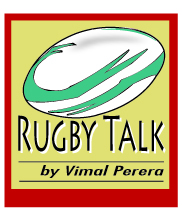Four tries to stay alive
View(s):This will be the eighth week and rugby will sleep through for the festive season to wake up and finish round one in the first week of January.
The second round which will see teams work harder to get small increments. It is a tight fight upfront and the rise will be small as seen in recent times with the bonus points being lost. Does the inability to score four tries speak of a game that is tight or a lack of attacking skills that prevents an aggregate of eight tries or more?
That is what the spectator will want to see in the new year and not big boasts of big names and how much was spent. The match between Havelock’s and Navy on Saturday determines how tight the points table will be.
In the seventh week Police who are in fifth place were taken on by CH who is in eighth place. Police needed a win to remain in fifth place as they are followed close by CR and Army who have lost three matches like the Police.
CH was on a high as they led by 12 points to 3 at halftime with all scores done through penalties. CH is a side that has depended on penalties and the first four scores were a result of Police being penalised. The inability to tackle in the first 10 minutes of the second half and then on wards allowed Police to score four tries.
This was a match where drama unfolded as both benches were excited and kept shouting hoarse not only to their players but to the referee too. Through most parts of the match, this trend continued and the spectators too joined as they followed those on the team benches.
Most were asking why the referee was using the captain to warn the bench officials without himself not doing so. What has to be understood is the protocol that is followed in using the captain as the focal point by the referee for communication. It is so that the match official can get on with the game.
Why question the process when all else is a game of unstructured rugby, much scrappy and behaviour that should have no place in the playing enclosure. What is most funny is that teams that are way down and trying to fight for a place in the last three positions are making so much noise and lodging protests on how the game was refereed or who should referee.
Police came back with Apisai scoring but need to figure out whether he is a friend or foe. He may be the highest try scorer but considering the individual heroics one wonders whether he plays to any game plan. It is not only with the Police, I feel the same with all Fijians whose forte is Sevens and individual brilliance pays. The time the Police maverick used team support they beat CR convincingly. Otherwise it is most lackluster with one lone elephant making a break to the road.
Kandy too were jolted by the highly unpredictable CR side and won but failed to get bonus points. Yet they retain the top slot while Navy follows close with Havelock’s much close to their tails. The much expected Army-Navy clash turned to be a drizzle and not a storm as most expected. Navy got their bonus points while the much expected Army dropdowns making a rise needing hard work.
Though at most rugby corners people talk of the money that is spent on the game and the high profile names running down the park the game seems strange and disconnected if you compare it to a live broadcast of an international match.
Most matches do not have a structure with a high penalty count at the tackle, ruck and maul. If they manage to keep the game continuous the spoke in the wheel is a drop or forward pass. When the number of scrum are reducing in world rugby and line outs increasing as kicking is judicious we find scrums increasing at local games.
That is a result of bad ball handling skills which seem to plague most clubs. The improvement of skills is something that the Union has to work out and has to be part of long term player development plan. Invest in a technical analysis soft ware and do a run of motion study to determine what is going wrong. In the short frame take some promising players and study and correct them. It is not all about how much you pay coaches but how much modern training support is used. This support is also a supplement unlike the boosters we talk of when refereeing to supplements. Compliment of the season and will talk again after Christmas.
Vimal Perera is a former Rugby Referee, coach and Accredited Referees Evaluator IRB


